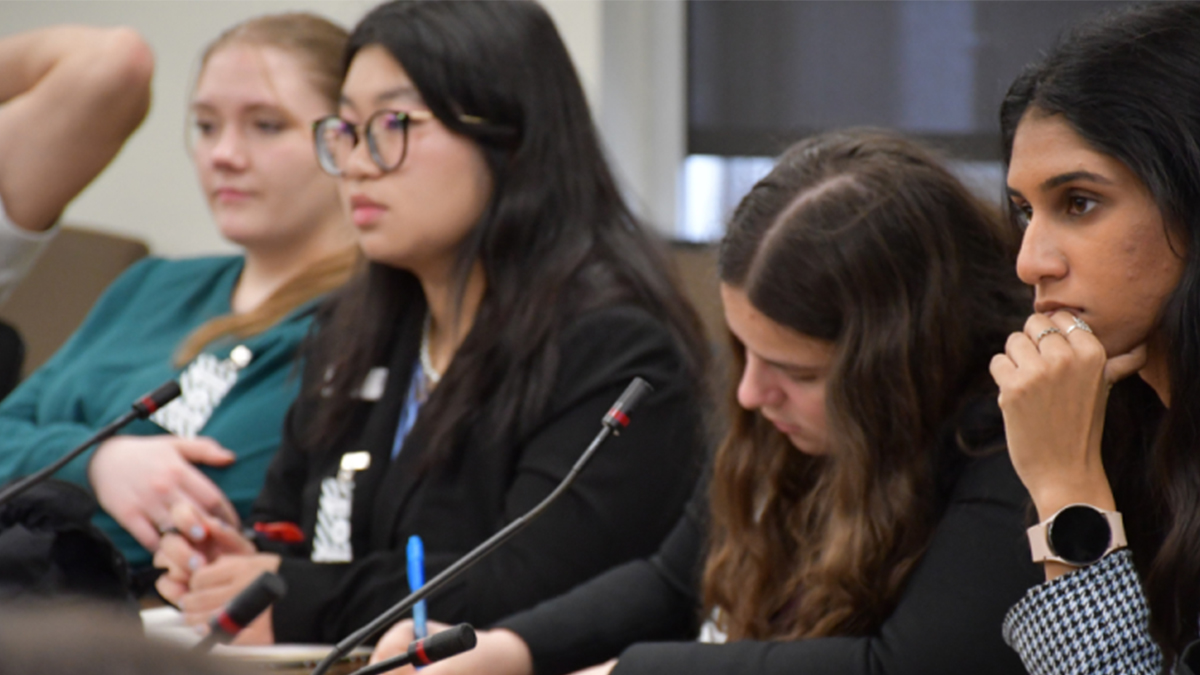Task force on mental health created to assess — and meet — a growing demand for services
The new task force will assess the scope of mental health care needs at Carolina and provide recommendations regarding campus-based policies and programs related to mental health care.

Executive Vice Chancellor and Provost Bob Blouin and Vice Chancellor for Student Affairs Winston Crisp have convened a student mental health task force to assess the scope of mental health care needs for students at Carolina.
Crisp announced the creation of the task force March 28 at the University Board of Trustees’ University Affairs Committee. Its charge will be to:
- Assess the scope of mental health care needs at Carolina;
- Evaluate existing or emerging best practices from a variety of disciplines; and
- Provide evidence-based guidance and recommendations regarding campus-based policies and programs related to mental health care.
To optimize its effectiveness, Blouin and Crisp selected task force members who represent major areas of campus life, including academics, health, policy and student affairs, Title IX and students.
Erica Wise, professor of clinical psychology and director of Psychological Services in the Department of Psychology, will chair the task force. Chuck Duckett, chair of the University Affairs Committee, will also serve on the task force, along with Crisp, Savannah Putnum, the incoming student body president, and Manny Hernandez, incoming president of the Graduate and Professional Student Federation. In all, Crisp currently has recruited 19 task force members and hopes to add two more faculty members and an undergraduate.
During his presentation, Crisp shared an overview of Counseling and Psychological Services (CAPS), which currently provides therapy, psychiatry, referral and academic intervention services for students and post-doctoral fellows.
Crisp said Carolina operates CAPS under a short-term therapeutic model, which is the same approach used by all universities across the country. Its underlying philosophic purpose, he added, has always been to support the academic mission of the University, which translates into “keeping students healthy and well-balanced enough to participate fully in the academic enterprise.”
In order to meet that charge, CAPS is open from 8 a.m. to 5 p.m. on weekdays and has counselors on call 24-7, 365 days a year, Crisp said. “We are not necessarily going to have all your needs taken care of the day you walk into CAPS,” Crisp said, but all students are seen for initial evaluations the same day they walk in.
After initial consultation and evaluation, students may be offered individual short-term therapy to stabilize and evaluate, with no limit on the number of sessions offered; group therapy; medication evaluation and maintenance; and academic interventions and crisis referral.
But that model, as a result of growing demand for services, has become increasingly strained, Crisp said. As a result, there is growing debate across the country about whether that model should be expanded to include long-term care.
Over a five-year period from the 2012-13 to 2016-17 academic years at Carolina, the number of walk-ins at CAPS increased by 104 percent and the number of urgent next-day follow-up appointments increased by 101 percent.
At the same time, academic interventions and telephone-web contacts both increased by 43 percent. Medical evaluations increased by 25 percent, while medication management increased 70 percent.
On average, a student will need to be seen three to five times in order to “stabilize the situation,” Crisp said. Counselors continue to meet with students as many times as necessary to address the problem they are facing.
But because CAPS is not set up to provide long-term therapeutic care, students in need of such care must be referred to a community provider. Students have raised concerns about the high proportion of students – about 30 percent – who receive long-term care in this way, Crisp said.
Another aspect that the task force must take into consideration is the limited funding sources that CAPS has available to pay for services. Of the CAPS operating budget of $2.66 million this fiscal year, $2.2 million was paid for with revenues from the student health fee, he said.
For 2017-18, the student health fee was $381, with $87, or 23 percent, going to support CAPS and the remaining 77 percent going to pay for Campus Health Services and student wellness.
While adequate funding is an area of concern that must be addressed, Crisp emphasized one ongoing strength of CAPS are counselors who run it.
“I want to be the first person to stand here and say this is not about what is wrong with mental health care on this campus,” Crisp said. “There is nothing wrong with mental health care on this campus except they are overwhelmed.
“We can’t just be overwhelmed and accept that. We have to figure out how to do more of this and how to this better and that is what this task force and that is what this board is going to be about.”
Crisp said the task force will work through the summer before proposing a series of recommendations by the end of the year.




